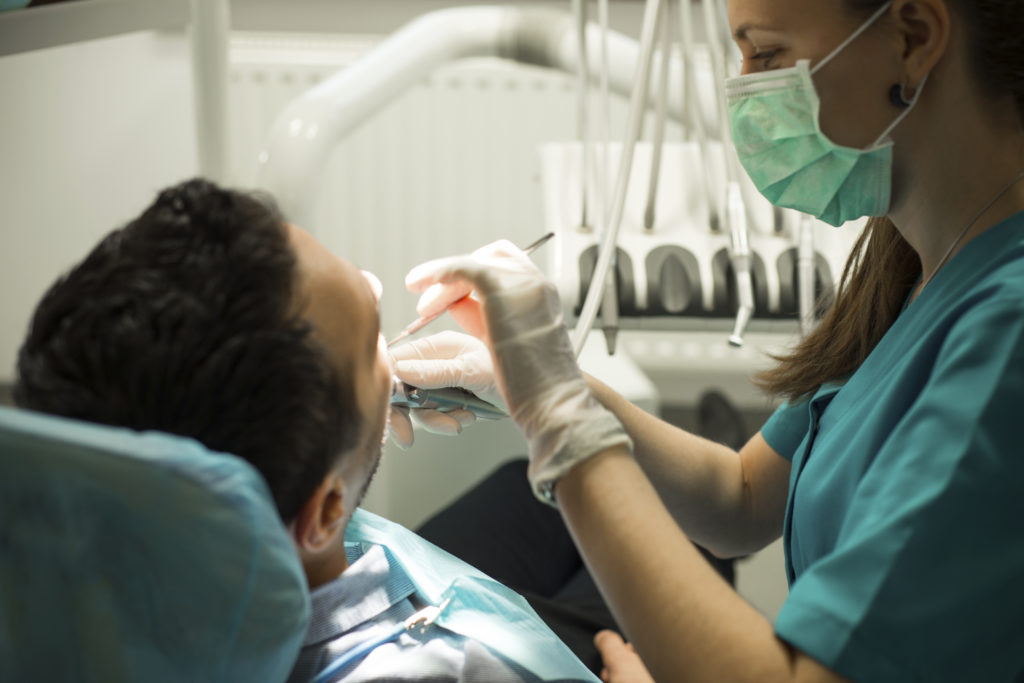
Gum disease is a very serious issue that can wreak the health of your mouth over time. If it is not properly cared for, you could eventually experience gum recession, bone and tooth loss. In order to prevent this, we have several procedures in place in order to fight the disease. The first step is typically scaling and root planing as this allows us to get beneath the gum line and remove all plaque and bacteria that are causing the inflammation and bleeding of the gums. Sometimes this procedure is not enough, however. When there are excessive pockets between the teeth and the bone, this procedure is not enough; it requires periodontal flap surgery.
The Procedure
The periodontal flap surgery enables us to get closer access to the areas that are affected by bacteria and plaque. In essence, we cut a flap in the gums that allows us to get directly to the pockets in your gums. We are then able to remove the infected material from this area as well as get to the root of the tooth if there are any issues there that need to be handled. The flap is a simple incision in your mouth that heals up very nicely when it is complete.
After we clean the area thoroughly, provide any antibiotic packets that are necessary, we determine if any grafting is necessary to regenerate certain areas of your mouth. If you have suffered bone loss or gum recession, we may use this time to place grafting materials in the areas that need help in order to build it back up and help you retain your natural teeth and/or make you a good candidate for dental implants should that need arise.
Recovery
Recovery from periodontal flap surgery is very uncomplicated. Once we are done with the area, we sew the flap back up with simple sutures. The area is typically surrounded with a dressing to apply the necessary pressure and/or stop the bleeding. The recovery time is very minimal, allowing you to go back to your normal routine almost right away.
Periodontal flap surgery may seem invasive, but it is sometimes necessary if gum disease has gotten out of hand. You can prevent the need for this surgery by properly brushing and flossing your teeth every day as well as keeping your regular cleaning appointments to ensure that your mouth is free from bacteria and debris.
Site created by AR Marketing & Design Agency